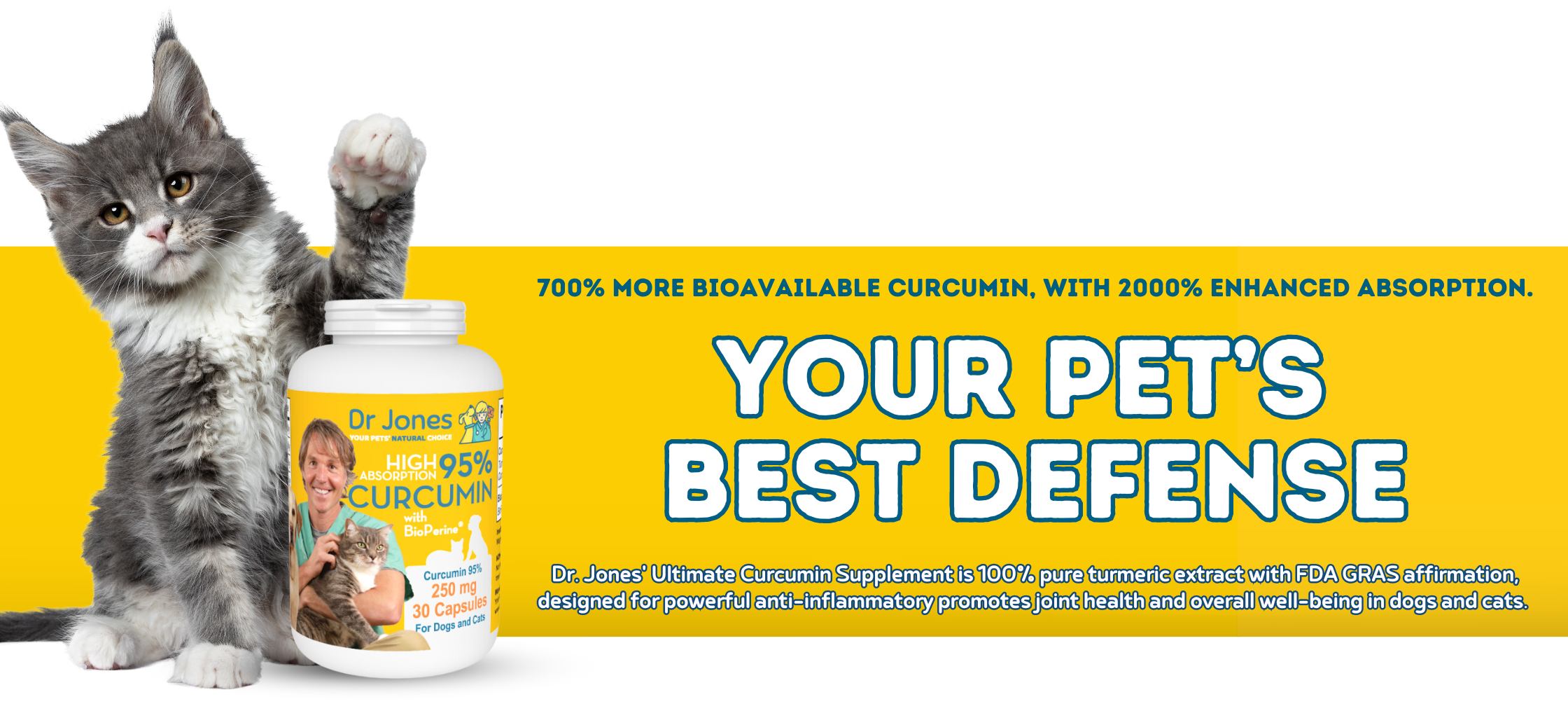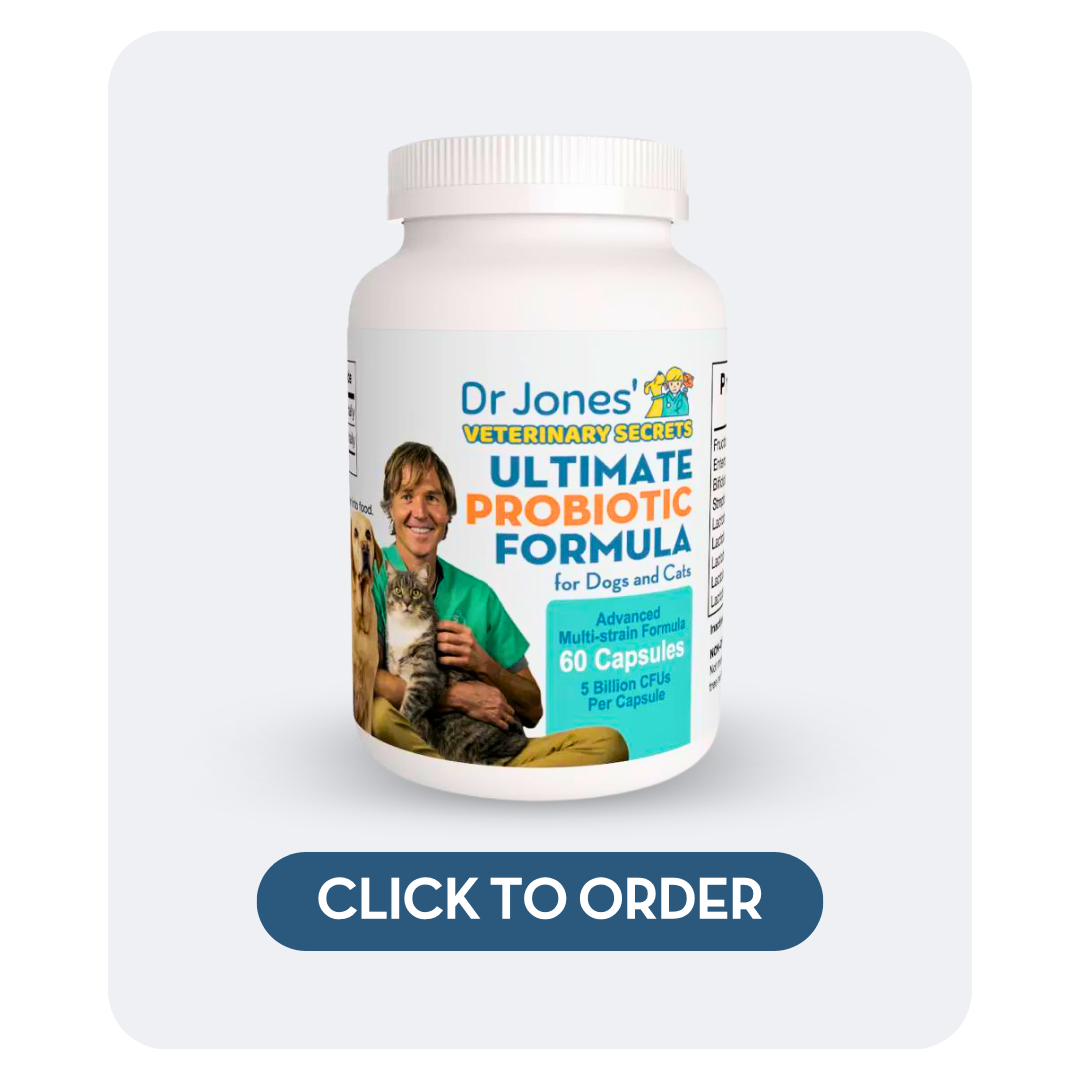How to Treat Growths and Polyps in Pets with Holistic Solutions
![]()

Understanding Growths in Pets
Fortunately, most of the growths we find on our pets are not serious. However, even non-threatening growths can still cause problems, whether they affect your pet’s comfort or lead to other health complications. It’s always important to keep an eye on any changes in your pet’s health, and the same goes for lumps and bumps.
When to Monitor and When to Be Concerned
While most lumps are benign, some can be more serious. It’s crucial to monitor the growth’s size, shape, and any other accompanying changes, such as inflammation or discomfort. If you notice any significant changes in the lump or if it causes your pet pain or discomfort, it’s time to visit the vet for an assessment. Early detection is always better when it comes to potential health issues.
Supporting Your Pet’s Immune System
In some cases, certain supplements can support your pet’s immune system, helping it attack abnormal growths and potentially reduce their size or impact. One of the options you should consider is our NEW 95% Curcumin Supplement, Dr. Jones’ Ultimate High Absorption 95% Curcumin for Dogs and Cats. This supplement is formulated to help enhance immune function, supporting your pet’s natural defense mechanisms.

If you’re ever unsure about a lump or growth on your pet, don’t hesitate to consult with your veterinarian. They can provide guidance on the next steps and determine whether further treatment is necessary.

Understanding Polyps in Pets: Causes, Concerns, and Natural Remedies
I often encounter concerns from pet owners about polyps—abnormal tissue growths that can appear in various parts of your pet’s body. These growths are typically benign, but understanding where they occur and how to manage them is essential to your pet’s health.
What Are Polyps?
Polyps are benign growths that can appear in different parts of a pet’s body. They are abnormal tissue growths often characterized by a stalk with a rounded head, resembling a mushroom.
Common Locations of Polyps
-
Rectal Polyps
These are common in both dogs and cats. While they are usually benign, some may eventually become cancerous. -
Nasal Polyps
Found in both dogs and cats, nasal polyps can lead to breathing difficulties. -
Ear Polyps
Also known as aural polyps, these can lead to ear infections and other problems within the ear. -
Nasopharyngeal Polyps
These occur in the throat and are often associated with ear infections, causing breathing problems and even head tilting.
Why Are Polyps Concerning?
While most polyps are benign, there is a risk of them becoming cancerous, especially if they are large. Even benign polyps can cause discomfort, breathing issues, or other health complications.
Surgical removal is often an option if necessary, but most polyps do not require surgery. Thankfully, there are several non-surgical options to manage and treat polyps.
Natural Remedies for Polyps in Pets
There are multiple ways to support your pet’s immune system and manage polyps without resorting to surgery. Here are some holistic approaches I recommend:
1. Boost the Immune System
-
Vitamin E: Administer 100 IU per 10 lbs of body weight daily to improve your pet’s skin immune function.
-
Omega-3 Fatty Acids: Fish or krill oil can boost immune function and help with skin health.
-
Healing Mushrooms: Supplements like Turkey Tail, Reishi, and Chaga mushrooms can stimulate the immune system. A dosage of 100 mg per 10 lbs daily is recommended.
-
Green Tea Extract: This can help manage lump growth and boost the immune system. I recommend 50 mg per 10 lbs daily.
-
Colostrum: Bovine colostrum (100 mg per 10 lbs daily, both topical and oral) can promote immune health.
2. Apple Cider Vinegar (ACV)
ACV acts as a natural peeling agent to remove dead skin cells. Soak cotton balls in ACV and apply them overnight to the affected areas.
3. Herbal Remedies
Topical Aloe and Calendula creams can help reduce inflammation, especially from ruptured cysts or inflamed polyps.
4. Cannabinoid Supplements (CBD Oil)
CBD oil and cannabinoid blends can reduce inflammation and enhance the immune response to growths. I recommend a dosage of 3 mg per 10 lbs, given twice daily.
5. Homeopathic Solutions
Thuja is often recommended for any type of lump. A dosage of 30C once or twice daily for at least 30 days can be helpful.
6. Topical Preparation-H
This has worked well for clients dealing with rectal polyps. It’s safe and can help reduce inflammation and strengthen the vascular wall. Apply it topically twice daily for 21 days.
7. Melatonin
Melatonin has shown promising results for polyps due to its antioxidant properties and ability to regulate circadian rhythms, which influence immune function. A typical dose is 2 mg per 20 lbs, given once or twice daily for 30 days.
8. Curcumin
Curcumin, derived from turmeric, has anti-inflammatory and potential anti-cancer benefits. It has been effective for some pets with nasal or rectal polyps. I recommend a dose of 50-100 mg per 10 lbs, once or twice daily. Our Dr. Jones’ HIGH ABSORPTION 95% Curcumin supplement is highly effective due to its superior absorption.
Healing Your Pet Naturally
Most pets with polyps do not need surgery, and many of these natural remedies can help improve their condition. However, it’s always a good idea to consult with your vet first to rule out any serious health issues.
That said, I encourage you to be open to holistic options that may support your pet’s well-being. Remember, natural solutions like the ones I’ve listed above can often offer effective and non-invasive relief.

P.S. If you’re looking for a reliable curcumin supplement, consider trying Dr. Jones’ HIGH ABSORPTION 95% Curcumin for dogs and cats. It’s a potent anti-inflammatory with excellent absorption properties.











Hi Dr. Jones,
We took our 3 year old Pitbull Rook to the vet because he was limping on one leg and we found a bump. After the x-ray were completed, the doctor said possible fungal infection or cancer on the bone. Our said that he will need to go through further testing. They were going to do the fine needle on the bump but it was kind of think. The vet wants to take s sample from the bone. What are your thoughts on my young male dog?
The presence of a bone lesion and associated limp in a young dog like Rook raises concerns about potential osteosarcoma, a common and aggressive bone cancer in dogs. However, fungal infections, such as blastomycosis, can also cause similar symptoms and should not be ruled out without proper testing.
The veterinarian’s recommendation to perform a bone biopsy is a prudent step to obtain a definitive diagnosis. This procedure, though more invasive than a fine needle aspirate, provides a larger tissue sample, which can be crucial for accurate diagnosis. It’s typically performed under sedation or anesthesia, ensuring Rook’s comfort during the process
Hill’s Pet Nutrition
It’s essential to monitor Rook’s condition closely. If you notice increased pain, swelling, or changes in behavior, inform your veterinarian promptly. Early intervention can significantly impact the outcome, especially if the condition is cancerous.
In the meantime, ensure Rook’s comfort by limiting strenuous activities and providing a soft resting area. Maintain open communication with your veterinarian to discuss any concerns or changes in Rook’s condition.